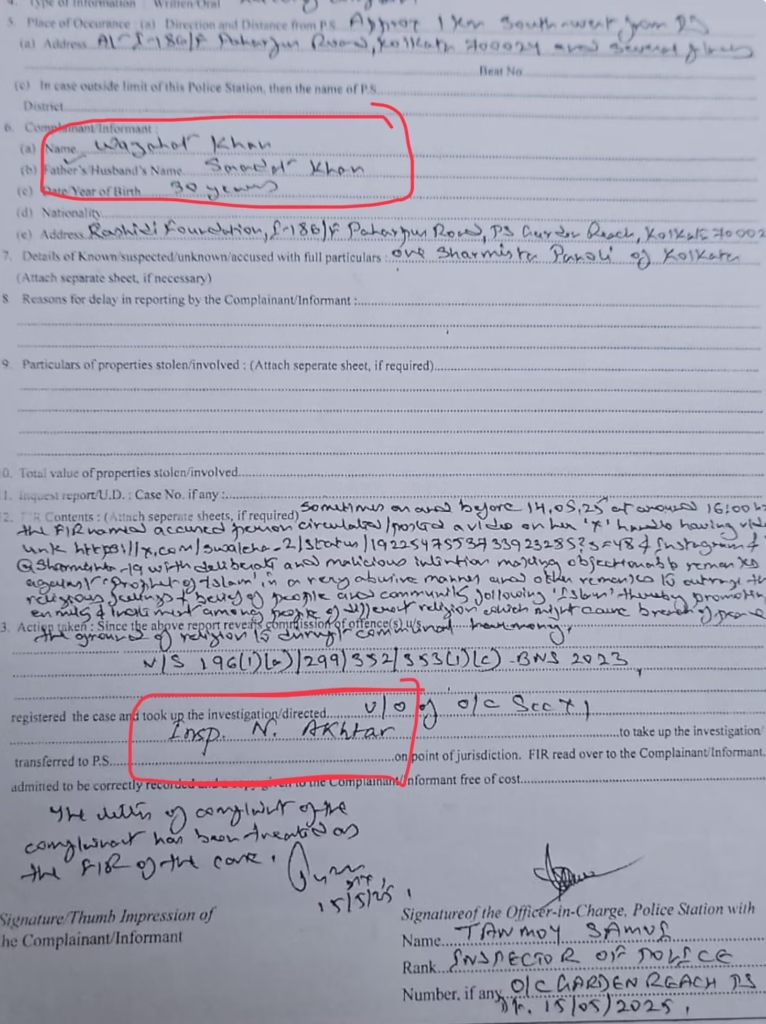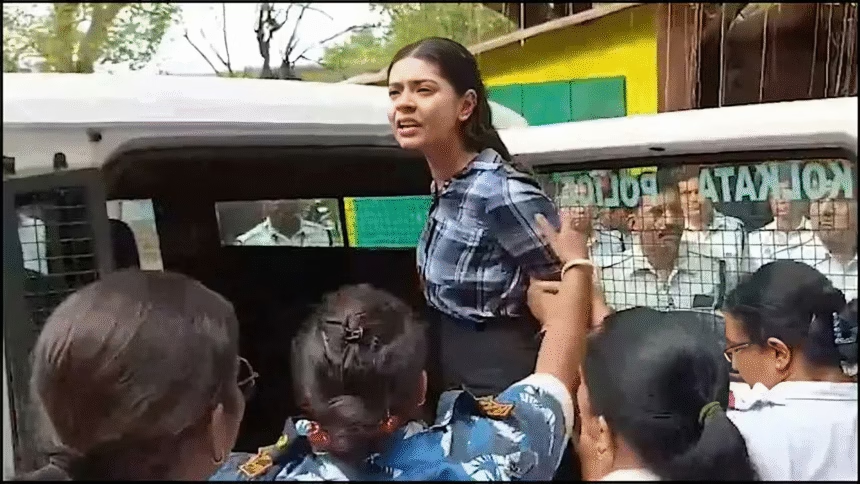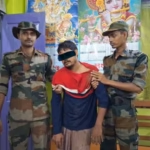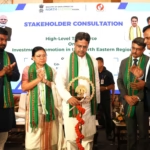Kolkata, 31 May 2025: The arrest of 22-year-old law student Sharmistha Panoli has triggered a nationwide debate over freedom of expression, religious sensitivities, and alleged political bias in West Bengal’s governance. Originally from Pune and currently based in West Bengal, Sharmistha was detained by Kolkata Police from Gurugram, Haryana, on May 30 in connection with a controversial video linked to Operation Sindoor.
The video, since deleted from social media platforms, allegedly included remarks perceived as disrespectful to Islam and the Prophet Muhammad. Following public outrage, an FIR was filed in Kolkata on May 15, invoking multiple sections of the Indian Penal Code 153A (promoting enmity between groups), 295A (deliberate acts to outrage religious feelings), 298 (utterances intended to wound religious sentiments), and 505 (statements conducive to public mischief). At least five FIRs have reportedly been lodged against her across West Bengal.

In a now-viral social media post, Sharmistha offered an unconditional apology, stating:
“My views were personal, and I had no intention of causing offense. I sincerely apologize to anyone hurt.”

However, this apology did little to sway the judiciary. A local court rejected her bail plea, denied police custody, and remanded her to judicial custody until June 13. Her legal team is expected to approach the Calcutta High Court, though a hearing date has yet to be confirmed.
Social Media Storm
The arrest has sparked polarized reactions online. Supporters of Sharmistha, many identifying with nationalist sentiments and backing Operation Sindoor, claim the arrest is a case of selective targeting and political suppression under the Trinamool Congress (TMC)-led government. Hashtags like #ReleaseSharmistha and #SupportSharmistha have been trending on X (formerly Twitter), with users accusing the state administration of silencing dissenting voices.
Conversely, civil society groups and others have welcomed the legal action, arguing that the comments were inflammatory and could have incited communal unrest. Some critics are demanding tighter regulation of online speech that targets religious communities.
Broader Political Undercurrents
The incident unfolds against the backdrop of rising tensions around Operation Sindoor, a military-led initiative that has polarized public opinion. While supporters hail it as a decisive move against insurgency and anti-national elements, detractors view it as a politically driven campaign with communal undertones.
Analysts note that the absence of any official police action against individuals reportedly issuing threats against Sharmistha has further intensified the debate. Allegations of “selective justice” and “political vendetta” have added fuel to the fire, especially with the general elections on the horizon.
What Lies Ahead
Sharmistha’s legal team is expected to challenge her custody in the High Court. Meanwhile, public discourse continues to shape the narrative around her case—one that encapsulates the intersection of faith, politics, and free speech in India’s digital era.










